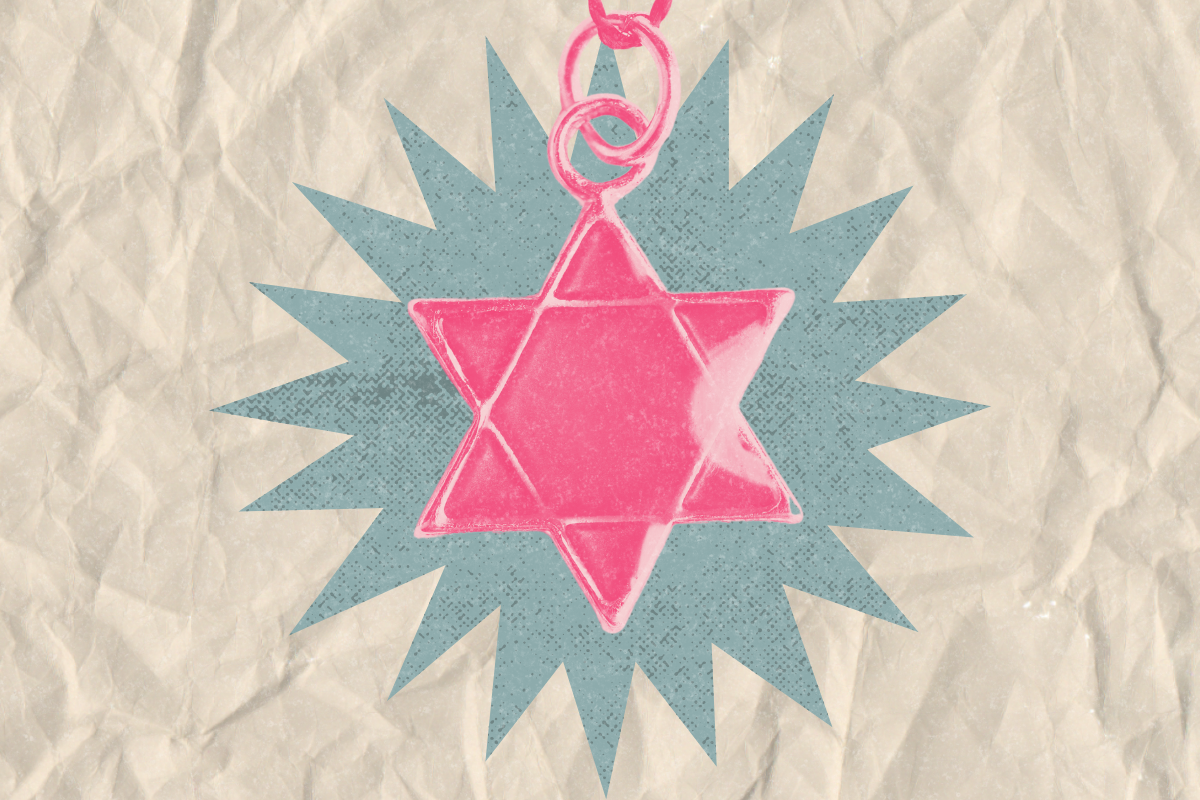For most Jewish teachers and students, it’s a matter of when, not if, they will face an antisemitic incident at school, the playground or at school-sponsored activities like sporting events. I’ve met many who have been targets of Jew-hatred. Their fear and sadness propelled me to write this article.
As an author and educator, my focus for the past six years has been on preventing and stopping antisemitic assignments in schools and guiding students and adults to report and speak up against any form of hatred, including antisemitism.
Even before the October 7, 2023 massacre by Hamas in Israel, almost every Jewish student and teacher I had met had experienced antisemitism. The vast majority had not reported the incident to school officials. That is still true today. Those who did report the incident received a wide range of responses. Many administrators acted, implementing zero tolerance for hatred and bullying of any kind. Others ignored, downplayed or even defended the actions until there was community outcry.
Since October 7, however, the biggest changes I’ve seen are the increased frequency, justification (even though there is none) and acceptance of Jew-hatred. A recent survey of Jewish high schoolers who are members of BBYO found that 71% of those polled had experienced antisemitic harassment or discrimination — with 46% of those incidents happening at school, and 19% during extracurricular activities. I’ve personally witnessed more fear and despair among Jewish students and educators. Even more painful is recognizing that many who use antisemitic epithets or tropes hide behind their hatred as their right to free speech. Comments like “dirty Jew,” “Hitler missed you,” “F%ck the Jews,” and “Zionist pig” are common and often go unchallenged and unreported. Swastikas and Nazi salutes are seen all over school grounds. These hateful incidents are frightening, shocking, upsetting and threatening.
Yes, hate speech is protected under the First Amendment. Unfortunately, people use free speech as an excuse to intimidate, harass and create an unsafe environment for those targeted. We know bullying causes tremendous harm. Yet, we see the cry of free speech as an excuse for vile words and actions.
When I ask students who use social media if they’ve seen something hateful online, consistently every hand goes up. The vast majority, however, never report it. Our students have become used to and immune to hatred. This is one part of the problem. It is also one reason for their silence.
There are many reasons why people ignore or remain silent when confronted with any form of hatred, bigotry and injustice, including Jew-hatred. Instinctively, many want to avoid conflict or protect themselves and their loved ones. They might be afraid the situation will escalate to a physical confrontation. It’s easier to be a part of a silent majority than to be the only person to speak up.
But we cannot pretend that an antisemitic incident didn’t happen or that it wasn’t a big deal. Remaining silent is never the answer. Speaking up is hard, and safety always comes first. No one has told me they regretted speaking up. But I’ve met many people who have regretted being silent.
So, what should you do if you or a young person you know experiences antisemitism?
Every situation is different. How to react sometimes can be a split-second decision while other times takes hours of contemplation. How we respond, however, can have a profound impact on the outcome.
Tips for confronting antisemitism in schools:
If you can, take immediate action. Use phrases like: “What did you just say?” or “Did you realize that’s a stereotype [of Jews]?” or “What did you mean by that?” These questions and phrases often startle the person who made the hateful comment. It will create a pause, forcing them to contemplate what they said. Some people will immediately apologize. Others may gaslight or deny their words. Don’t let them get away with that.
Practice saying the above phrases so you’re prepared in case you need to use them.
Talk one-on-one with the person who made the antisemitic comment. Confrontation in a group can be difficult. So, if you don’t feel comfortable speaking up in the moment or you freeze, set up a time to have a private conversation.
Possible ways to approach the conversation: “Thank you for being willing to talk with me. I value our friendship and realize you may not be aware that you said something hurtful and antisemitic. [Repeat their words so there is no confusion.] I wanted to clear the air with you because I know you’re a kind and thoughtful person and would never want to offend.”
Or: “Thank you for talking with me. When we were at _______ you said, ‘________.’ I was really surprised. Why did you say that?”
Dealing with repeat offenders. What if you’ve had multiple conversations and nothing works? A student told me that every time she sees a particular person, they make an antisemitic comment. She found the best way to deal with it is to smile brightly and say, “Have a great day!” She refuses to allow this person’s hatred to ruin her day.
Remember this hatred is not a reflection on you, but a reflection on the person spouting the hate.
Tips for reporting antisemitism:
Be wary of posting on social media. For many, their first reaction might be to post on social media about the incident. Before you do so, I recommend that you first act upon the suggestions listed below. I have found that they are the most effective ways to confront and stop antisemitism. If you are thinking about posting, pause. With the toxicity on sites like TikTok, Instagram and X, you are welcoming anyone to comment, and information can be misconstrued. Be careful. Think about whether this will help or hinder your efforts. Can you and your family weather the possible storm? Many schools have policies regarding posting about school incidents online. Make sure you know what those are.
Write down talking points. This may be helpful if there is an extensive history, or the incident is complicated.
Know what outcome you would like before reporting the incident. Do you want the perpetrator suspended? Removed from a team? Fired? Or would restorative justice practices be healing and helpful for all parties involved? Is education needed? There is no one solution for all incidents. Overall, it is always best if people can come together and talk. Changing behavior, fostering tolerance, understanding and respect is often a productive outcome over punishment or punishment alone.
Be calm, be firm. Of course, it’s upsetting, disturbing and unacceptable when you or your student experiences antisemitism. I’ve had numerous conversations with teachers and administrators who have faced enraged adults demanding action. Based on my experience, many teachers and administrators do not understand the collective history and trauma antisemitism has had on our people. I’ve heard from many who’ve told me that they thought the parents’ responses were over-the-top. They, too, are frustrated and annoyed. Responding with anger, however, doesn’t resolve the problem and will not solidify administration’s support. Staying calm but firm with the goal to work in partnership with the school is the most effective way to get action.
In your meeting, you will set the tone. Here’s a possible script: “Thank you so much for your time. We know you care about all students and their safety. You may not be aware of the antisemitic incident that took place ____. [Share a detailed account.] We appreciate that we can turn to you to resolve this situation in a satisfactory manner.”
Have an ally by your side when speaking to a teacher or administration. There is strength in numbers. It’s hard to be the only one speaking up. I highly recommend finding at least one other person who will be by your side when reporting the incident to a teacher or administrator. You will be less likely to be dismissed when at least two people are present. Plus, it will bolster your courage.
Adult intervention. It’s natural for adults to want to intervene. Before doing so, ask your student if they want you to speak to the teacher or administrator about the incident with or without you. Depending on your student’s age and comfort level, please encourage them to report the incident themselves, hopefully with another student. This will foster their ability to handle a crisis. Please help prepare them.
Always report the incident. Report the incident to Jewish organizations. Jewish Federations, Holocaust centers, synagogues and your local ADL often have the potential to offer support and strategize with you. At the very least, report the incident to your closest Jewish Federation or JCPA (Jewish Community Relations Council), and the ADL, which collects data on antisemitism.
A final option: Contact the media. If you’ve tried every avenue to work with the school and you’ve been gaslit, ignored or they defended the actions, getting media attention will often hold those responsible accountable. There is a level of professionalism with the media that you won’t necessarily receive by posting on social media. Usually, it puts the school in a position to act and, at the very least, respond. But once it’s out of your hands, the exposure will be wide-reaching, and you must decide if exposing your family to that experience is worth it.
Regardless of the outcome, the best way to fight antisemitism is Jewish pride. There is no yardstick to measure a person’s Jewishness. You are Jewish enough. Take it upon yourself to learn and grow and experience Jewish joy.








